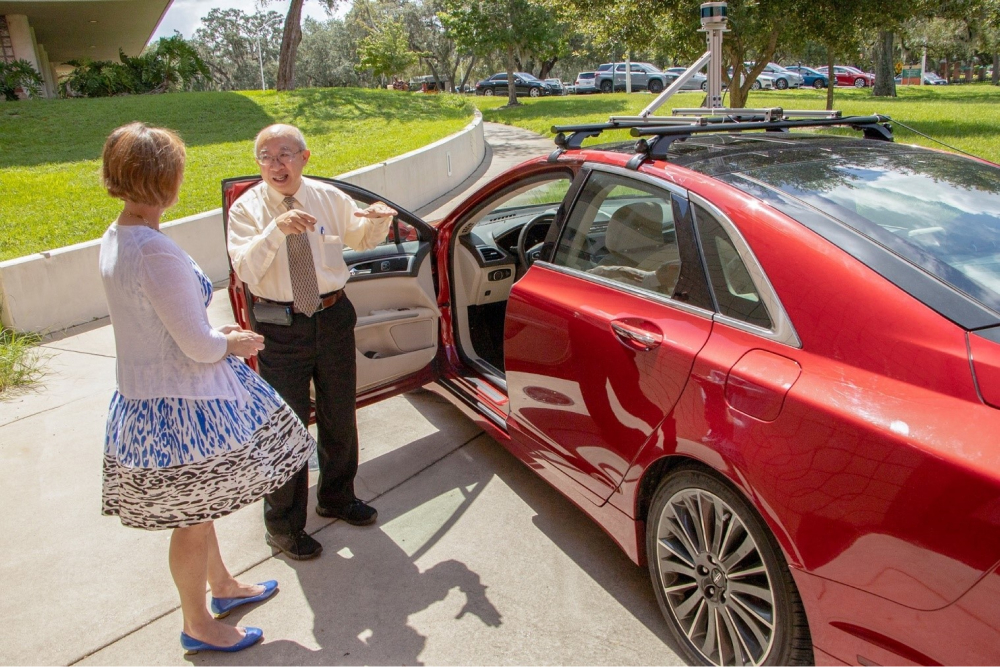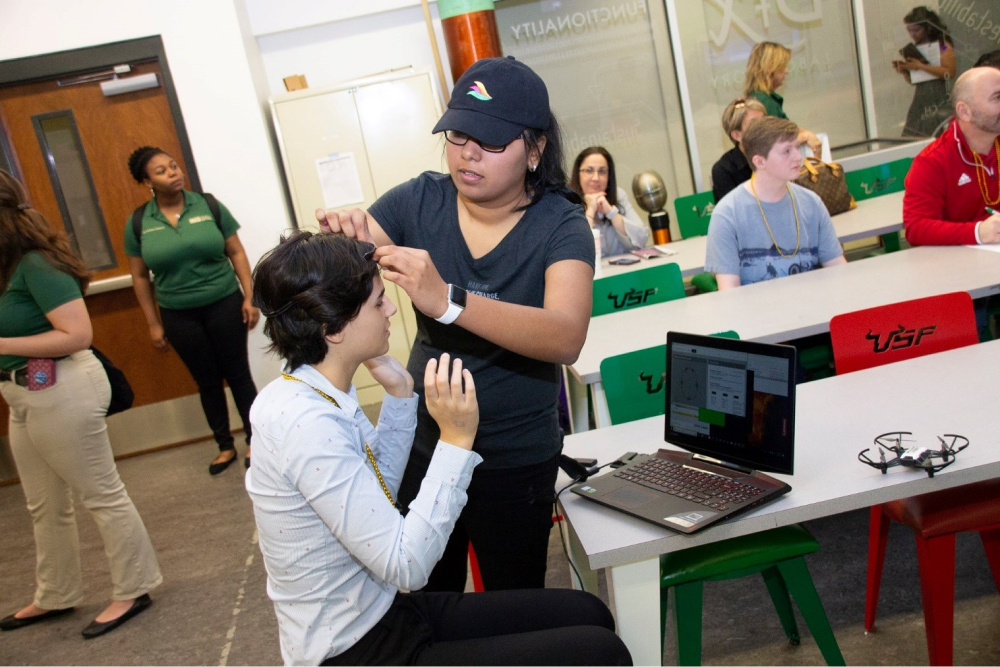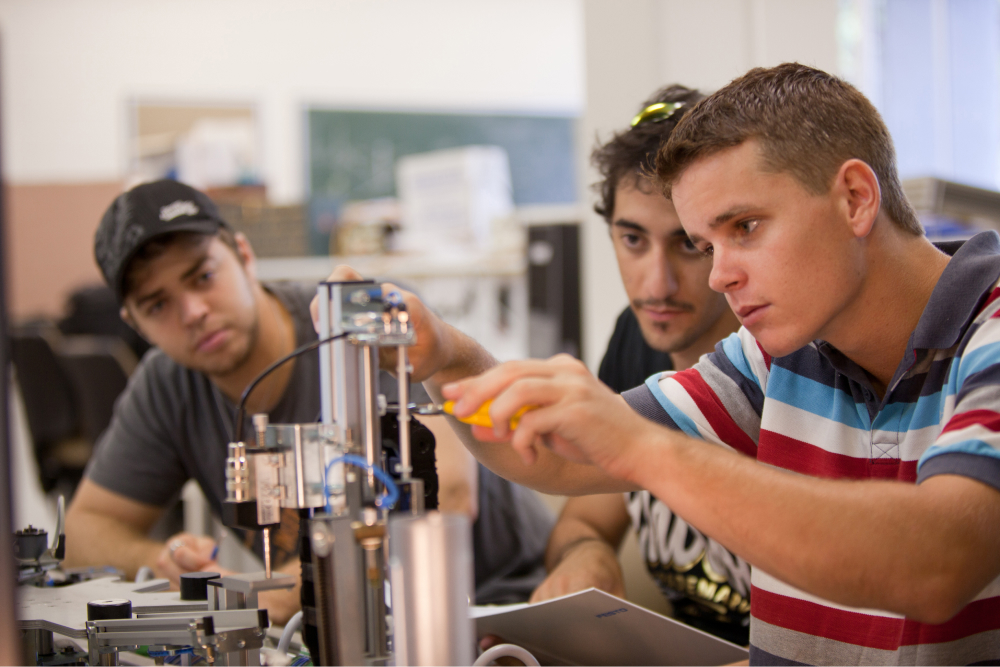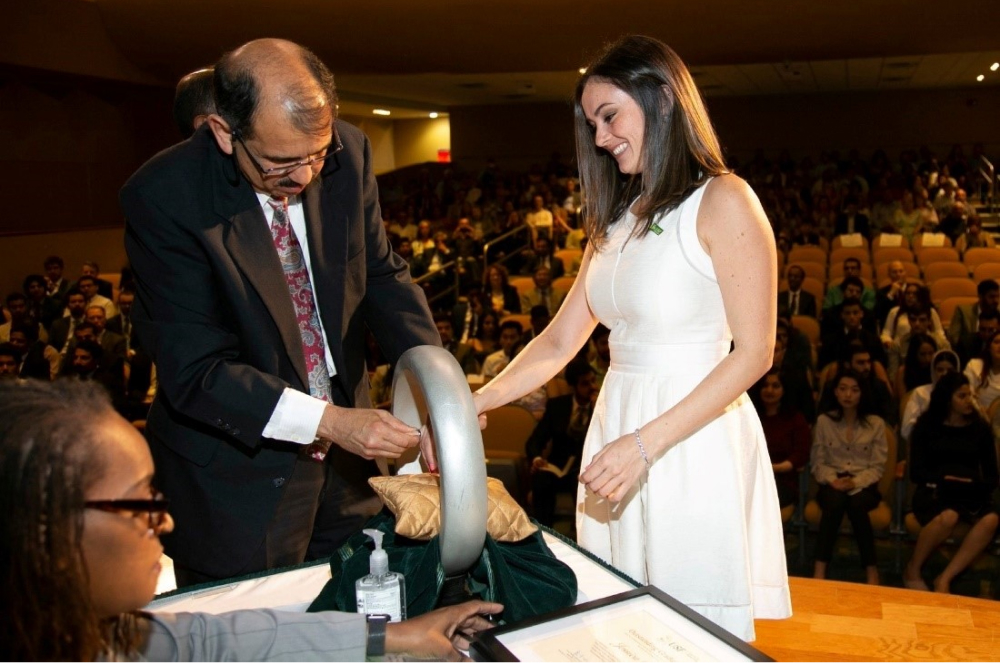Engineers of the Future: Essential “Properties” of Engineering Success
Beyond any doubt, engineering is a fantastic profession. Compared to other professionals, engineers do adopt unique lens to observe the world as well as contribute to build out this world employing science to make ever-increasing complexity the reality. And nowadays, since the world is more dependent on technology than it’s ever been, the Engineering is on the meteoric rise – actually, after decades of being marginalized, it has been “sexy” again!
Nevertheless, “the engineers of the future will not resemble the engineers of the past”. With the endless influence of the fourth industrial revolution, new disruptive technologies have kept on altering the employment landscape, especially for the engineers at the epicenter of this shift.
Engineers of the Future: Drive for Changes from an Educator’s Perspective
Taking a brief look over the technological world, it’s obvious that breakthrough innovations are on the horizon in a host of fields – energy, medicine, transportation, robotics, artificial intelligence, to name a few. And engineers will be ones who perform a key role in inventing the technologies of the 21st century – yet, they won’t be much like the engineers of the past. That was the message delivered by Stanford engineering professor and former dean James Plummer at the first IEEE Vision, Innovation, and Challenges Summit, held in San Francisco.

The engineers who will invent that future, as Prof. Plummer stated, “will be a different breed of people than the engineers we educated in the 20th century.” He highlighted that there will be fewer jobs for people in a world with more automation; whereby, educational systems have to focus on producing tech professionals who do what computers can’t do.
Quite similar to Prof. Plummer’s point of view, one technology funding organization surveyed in a Pew Internet report did prove that “the jobs of the future will not need large numbers of workers with a fixed set of skills, most things that we can train large numbers of workers for, we will also be able to train computers to do better.” In practice, the already technical positions in engineering-related fields are both the most likely to see changes and to continue requiring new candidates within existing and emerging fields.
When it comes to engineering prospects, the Stanford Professor also indicated that engineering education does mean a number of things. Whereas doctoral programs are not likely to change much, other than to become more interdisciplinary, masters-level programs, at least at brick-and-mortar schools, “will just go away”. Instead, “it will be about lifelong education and just-in-time knowledge, and that will be done online”, as he predicted.
Additionally, undergraduate engineering education, though it will persist, will change drastically. “Today, students are expected to be job-ready with a B.S. (Bachelor of Science) degree, so 75 percent of their education is technical courses. Freshman year is designed to be a filter; we send them off to take math and science and tell them to come back if they survive, so dropout rates are 50 percent or more,” Prof. Plummer explained.
Frankly speaking, this kind of education, which shuts out opportunities to explore the liberal arts, is structured so that, “most students say, ‘Why do that when I can do more interesting things in life.’” And actually, the world is not so structured anymore. “Careers are becoming global and unpredictable,” the Professor added. “Lifelong learning is essential. The half of life of engineering knowledge is three to five years.”
“As dean,” he genuinely shared, “I used to tell students it doesn’t matter what we teach you because it will be obsolete when you graduate, so go out and have a good time.”
Under Prof. Plummer’s perspective, he advocated broadening engineering education to include more liberal arts exposure and more life skills with a view to preparing future engineers for unpredictable career paths. To be more specific, the 21st engineers are required to develop communication skills, the ability to work in teams, global knowledge, and an entrepreneurial outlook as much as they will need technical depth.
He also pointed out that at Stanford, small seminars – some of which are organized around the Grand Challenges issued by the National Academy of Engineering – have been one way of tying engineering to problem solving. Plus, Stanford’s schooling approach of assigning teams of students with real-world problems, Plummer insisted, is another significant educational innovation. Furthermore, Prof. Plummer indicated, dramatically changing the introductory electrical engineering course to organize it around maker projects instead of lectures has stood out as an instrumental practice to draw students into engineering – and keeping them there!

Speaking of another educational challenge, he highlighted the importance of teaching that failure is acceptable and showing them how to recover from failure. “It is an important life skill…I haven’t found a way to successfully do it in a traditional classroom setting. It’s hard to encourage failure and grade students. The best success we have had in teaching failure is outside the classroom, by setting up student competitions and creating environments in which there are opportunities to work on ill-defined problems.”
But, fortunately, “today’s engineering programs, [which emphasize] creativity, innovation, project-based earning, and working in teams – things I didn’t get as a student -change how young people in the programs come out into the world. They make it cool to be an engineer,”
Besides, such changes have helped bring more diversity into engineering. “Overall, the diversity of our engineering programs is substantially better.” He noted that women have made up approximately 50 percent of some engineering majors, not electrical engineering or computer science, but bioengineering, environmental engineering, and product design – which are the engineering disciplines that focus on tackling real-world problems in teams.
“Maybe the women have historically been smarter,” he went on. “They didn’t want to put up with the more traditional engineering work environment.”
Ultimately, Prof. Plummer voiced his concern that even with the changes that have begun to pervade engineering education, up to 90 percent of college graduates in the United States are not engineering students—at a time when the nation demands more engineering graduates so as to establish the better world.
Engineers of the Future: 4 Cornerstone Skills
As already mentioned, new technology waves – artificial intelligence and machine learning, cloud-based and quantum computing, additive manufacturing and nanofabrication, advanced automation and robotics— are fundamentally reshaping some employment concepts. Whereas concerns about job loss due to automation are not without merit, such technologies are also poised to open up entirely new fields of study and employment never before conceived.
Several new jobs in 2020 and beyond will be in fields and technologies that didn’t exist a decade ago as anything more than a spark in someone’s imagination. “This is the best time for people who have the right skills and right education because there are tremendous opportunities,” shared Nick Van Dam, global chief learning officer at McKinsey & Co. “It’s also the worst time in history for people with ordinary skills and education.”
But which specific skillsets are considered to be the right ones? Or, from the engineers’ side, which skill do they need for the future of work? Let’s see!
#1. Complex Problem Solving
There goes without saying that problem solving is the core of engineering – to identify a problem, break it down to understand it, and then apply existing knowledge to formulate a system, device, or process that handles it well. This explains why problem solving – or complex problem solving, to be more precise – stands out as the most vital skills every single engineer will need for their future career.
When it comes to problems and problem solving, there exist several distinctive approaches that engineers should learn to take, which includes:
Fixing Broken Objects
Since by nature, engineers usually handle something that is broken, damaged or flawed, they do not only have to determine why it failed in the first place, but also figure out how to fix or redesign the system to avoid the same problems in the future.
Examining & Addressing Risk and Safety
As regards designing and building, especially the public welfare projects, a core precept of all engineering disciplines is a responsibility for public safety. Then, when it comes to problem solving, engineers have to carefully examine past trends as well as perform root cause analyses in order to anticipate and prevent future failures – or at least mitigate their impact.
Enhancing Performance and Efficiency
The design and manufacturing that goes into every process and piece of equipment is part of a web of relationships and influence, which means a single change in one aspect of a system can affect countless others. With that in mind, engineers should take into consideration every aspect of a situation or process to heighten efficiencies – whether that means saving weight on an aerospace structural component or shaving half a second off a machine’s cycle time, for instance.
Inventing New Things to Meet New Demands
Beyond merely fixing the old or the existing public infrastructure, manufacturing equipment and other systems, the engineering jobs of the future will need individuals who will be responsible for designing and building entirely new things – let’s say, autonomous traffic management, smart factories, and Internet of Things (IoT) enabled systems! Engineers – those well accomplishing advanced problem-solving skills – will be indispensable when it comes to assessing the potential risks and rewards of new technology as well as its impacts on cities, people, and the environment. That’s not to mention all the new problems that will arise from the integration of new technology into existing businesses and processes.
As McKinsey describes, “The hardest activities to automate with currently available technologies are those that involve managing and developing people (9 percent automation potential) or that apply expertise to decision making, planning, or creative work (18 percent). These activities, often characterized as knowledge work, can be as varied as coding software, creating menus, or writing promotional materials. For now, computers do an excellent job with very well-defined activities, such as optimizing trucking routes, but humans still need to determine the proper goals, interpret results, or provide commonsense checks for solutions.”
After all, the fore-mentioned things are key “ingredients” of problem-solving mindset – the engineer, who can master these problem-solving skills, is likely to be in a strong position for leadership and innovation in the future of work!
#2. Critical Thinking
Simply put, critical thinking does involve thoroughly analyzing a concept or situation with a view to reaching valid, sound, and objective conclusions. Solid critical thinking skills take practice, since it’s extremely easy to make decisions “uncritically” based on one’s own interests, biases, and emotions, rather than the facts.
And similar to several other professions, engineers are taught to be strong critical thinkers – not only to tackle technical problems but also to ensure the ethical performance of their responsibilities. To form and reinforce the critical mindset, there remain some handy yet super-powerful practices for engineers to take into account:
- Give wise questions to garner relevant and insightful information
- Identify possible biases and minimize their influence
- Collect and evaluate all available data relevant to the situation or problem
- Ask for feedback and collaborate with those involved in the situations, including people with different backgrounds, perspectives and also knowledge specialties
- Generate a variety of viable solutions and determine the optimal implementation, given the desired consequences
No matter how simple this may seem to be, such a way to interact with a problem proves to be a winning approach, ascertaining that the engineer has all the information about a problem that they need in order to solve it. In practice, the majority of companies, projects or teams that engineers are involved with include a wide variety of people and their abilities – and engineers with decent critical thinking skills will be able to take in all the disparate information from team members, possibly understanding both the individual technical details, as well as the overall big picture.
Furthermore, when it comes to narrowing down to one solution out of many, engineers’ critical thinking skills empower them to smartly analyze each potential solution and ultimately determine which one is the ethical and effective choice.
There is one common question that engineers themselves usually come up with: “How do you solve a problem you’ve never seen before?” Undoubtedly, the unforeseeable future will be full of these problems – every single change or emerging technology will trigger situations that no one has ever anticipated. This is where critical thinking comes into play, enabling engineers to learn about and understand these problems so they can apply their renowned problem-solving skills. Let’s say, think outside the box before you know what the box is!
“As an employer, critical thinking is the No. 1 skill I want in a job candidate. I need employees who can evaluate problems and develop solutions quickly, without constant supervision and direction. Such an employee is much more valuable to my company than someone who can’t operate independently, someone who (like a machine) relies on established rules and processes,” writes Ernie Bray, a Six Sigma Black Belt and leader of ACD.

#3. Creative Thinking
That engineering work always revolves around numbers and facts does not necessarily translate that engineers are not creative thinkers. Rather, assuming that great engineers lack creativity couldn’t be further from the truth!
In brief, creativity refers to the ability to make, invent, or produce something new instead of imitating something that already exists. Whereas there remain times when engineers are building off something else, the creative label still applies as they continuously look for new methods, approaches as well as processes to carry out everything cheaper, faster, and better.
Rather than being conservative and rigid, distinguished engineers prove to be exceptionally creative – this creativity is the reason engineers dream up innovations that answer through all kinds of aching concerns. Precisely, engineers are the ones who ask, “What if?” and then truly come up with something that has never been seen before.
Remarkably, it’s a given that the most prominent and successful engineers are also the most creative ones. Being an engineer, you should note down that while having a solid grasp on your core technical skills is of course essential, it is creativity that enables engineers to apply all this “soulless” knowledge in new and exciting ways.
From the employers’ standpoint, undeniably, they do value creativity just because creative people are typically the flexible thinkers who can not only figure out new solutions for new problems, but also new fascinating ways to motivate, new marvelous opportunities for business operations and relationships, anticipate what customers will wish before the questions are asked, and be willing to pursue independent or additional education and training. And of course, recruiting for an engineering position is not an exception!
Speaking of the future term engineering jobs, creative thinking, by all means, stands out as one of the most critical qualities. Why? With all the changes to technology, society, and individuals that already take place, as well as those which haven’t yet anticipated, creativity will be the key as engineers will have to not only respond to the existing problems but also to think “outside the box” and project new challenges before they actually arise.
After all, tech-powered machines may take over the number crunching and technical drawing, the data analysis, and the tedious, repetitive tasks – yet, they will not be able to think creatively in the same way a human being uniquely does.
“The most important skill is a meta-skill: the ability to adapt to changes,” told Carlton Pu, professor, and junior chair in software at the Georgia Institute of Technology. “As the rate of technological innovation intensifies, the workforce of the future will need to adapt to new technology and new markets. The people who can adapt the best (and fastest) will win. This view means that any given set of skills will become obsolete quickly as innovations change the various economic sectors: precision agriculture, manufacturing 4.0, precision medicine, just to name a few.”
#4. Emotional Intelligence in People Management
Within the engineering sphere, there’s a common misconception that if you’re an engineer, then you aren’t a “people person” – but being able to work for, with and in charge of others – which is a trait shared by every successful engineer. As most engineering projects involve the collaboration of many people, teamwork is often the focus of this job skill
Whereas there has been some movement towards remote and decentralized employment scene, as evidenced by the gig economy and digital meeting spaces, the bulk of engineering work still requires face-to-face human interaction. Not only do engineers work closely with their own co-workers and teammates but they must also be able to easily co-operate with engineers and non-technical staff from other companies and organizations. Given that, those who excel at managing people are better positioned to take on leadership roles and oversee entire projects or companies, “keeping all their employees working together like the proverbial well-oiled machine”.
Although teams and projects over the engineering workplace in the future are projected to have far fewer people and many more machines, personnel management and coordination skills still remain more than vital. Teams of a few people will oversee a collection of AIs, data analysis software systems, smart or autonomous robots, the inter-personal coordination will be overseen by these human team leaders. At this point in time, a human touch will be a “must” for things like leadership, deliberation, conflict resolution, or ethical considerations for decision making.
For ones in the position of leaders or managers, emotional intelligence in human management also plays the role of motivating and inspiring others – things that are almost impossible to envision an AI doing, even a charming one. Seeing that the trend for remote and decentralized work is likely to continue, the personal touch will be even more essential as you need to manage teams who could be located anywhere in the world – with much of the interaction occurring digitally. At least, until engineers obtain a picture-perfect, true-to-life digital avatar in a virtual meeting space, a human’s emotional intelligence will still be needed to parse out body language, tone, context, and subtext of communication through video and written text.
“The most important skills to have in life are gained through interpersonal experiences,” stated Frank Elavsky, data and policy analyst at Acumen. “These skills are imperative to focus on, as the future is in danger of losing these skillsets from the workforce. Many people have gained these skills without any kind of formal schooling, but with the growing emphasis on virtual and digital mediums of production, education, and commerce, people will have less and less exposure to other humans in person and other human perspectives.”
The Bottom Lines
“The ideal engineer is a composite … He is not a scientist, he is not a mathematician, he is not a sociologist or a writer, but he may use the knowledge and techniques of any or all of these disciplines in solving engineering problems.” – Nathan W. Dougherty, American civil engineer.
When thinking of the profession of engineering and the mindset of an engineer, people usually relate to a rational, methodical process – this perception is right (to a certain extent), yet by no means enough. Along the path to become an outstanding engineer and clamber up the greasy pole of success, particularly within such an ever-changing technological landscape, there exist several things other than raw knowledge and process – which include skills of complex problem solving, critical thinking, creative thinking, and human management!









